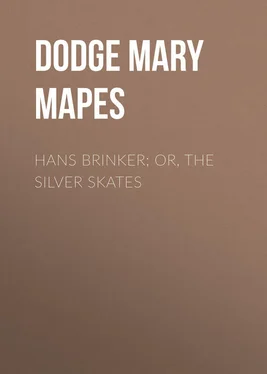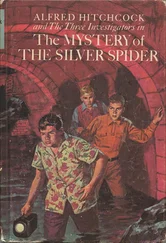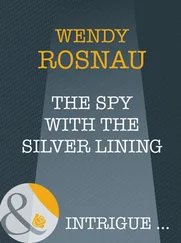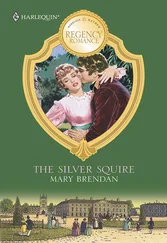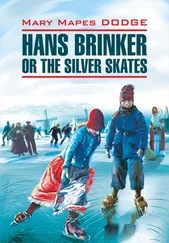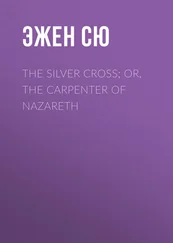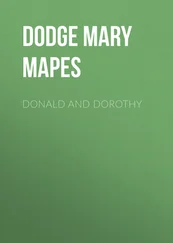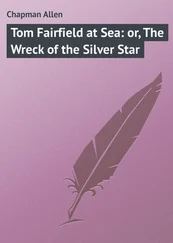Mary Dodge - Hans Brinker; Or, The Silver Skates
Здесь есть возможность читать онлайн «Mary Dodge - Hans Brinker; Or, The Silver Skates» — ознакомительный отрывок электронной книги совершенно бесплатно, а после прочтения отрывка купить полную версию. В некоторых случаях можно слушать аудио, скачать через торрент в формате fb2 и присутствует краткое содержание. Жанр: foreign_antique, foreign_prose, на английском языке. Описание произведения, (предисловие) а так же отзывы посетителей доступны на портале библиотеки ЛибКат.
- Название:Hans Brinker; Or, The Silver Skates
- Автор:
- Жанр:
- Год:неизвестен
- ISBN:нет данных
- Рейтинг книги:4 / 5. Голосов: 1
-
Избранное:Добавить в избранное
- Отзывы:
-
Ваша оценка:
- 80
- 1
- 2
- 3
- 4
- 5
Hans Brinker; Or, The Silver Skates: краткое содержание, описание и аннотация
Предлагаем к чтению аннотацию, описание, краткое содержание или предисловие (зависит от того, что написал сам автор книги «Hans Brinker; Or, The Silver Skates»). Если вы не нашли необходимую информацию о книге — напишите в комментариях, мы постараемся отыскать её.
Hans Brinker; Or, The Silver Skates — читать онлайн ознакомительный отрывок
Ниже представлен текст книги, разбитый по страницам. Система сохранения места последней прочитанной страницы, позволяет с удобством читать онлайн бесплатно книгу «Hans Brinker; Or, The Silver Skates», без необходимости каждый раз заново искать на чём Вы остановились. Поставьте закладку, и сможете в любой момент перейти на страницу, на которой закончили чтение.
Интервал:
Закладка:
"I had forgotten that," answered Lambert, "but it's a capital idea. Just fancy a party of Turks in full head-gear, squatted upon a lawn – perfect tulip bed! Ha! ha! capital idea!"
["There," groaned Ludwig to himself, "he's been telling Lambert something wonderful about Tulips – I knew it!"]
"The fact is," continued Lambert, "you can conjure up quite a human picture out of a tulip bed in bloom, especially when it is nodding and bobbing in the wind. Did you ever notice it?"
"Not I. It strikes me, Van Mounen, that you Hollanders are prodigiously fond of the flower to this day."
"Certainly. You can't have a garden without them, prettiest flower that grows, I think. My uncle has a magnificent bed of the finest varieties at his summer-house on the other side of Amsterdam."
"I thought your uncle lived in the city?"
"So he does; but his summer-house, or pavilion, is a few miles off. He has another one built out over the river. We passed near it when we entered the city. Everybody in Amsterdam has a pavilion somewhere, if he can."
"Do they ever live there?" asked Ben.
"Bless you, no! They are small affairs, suitable only to spend a few hours in on Summer afternoons. There are some beautiful ones on the southern end of the Haarlem Lake – now that they've commenced to drain it into polders, it will spoil that fun. By the way, we've passed some red-roofed ones since we left home. You noticed them I suppose with their little bridges, and ponds and gardens, and their mottoes over the door-way."
Ben nodded.
"They make but little show, now," continued Lambert, "but in warm weather they are delightful. After the willows sprout, uncle goes to his summer-house every afternoon. He dozes and smokes; aunt knits, with her feet perched upon a foot-stove, never mind how hot the day; my cousin Rika and the other girls fish in the lake from the windows, or chat with their friends rowing by; and the youngsters tumble about, or hang upon the little bridges over the ditch. Then they have coffee and cakes; besides a great bunch of water-lilies on the table – it's very fine, I can tell you; only (between ourselves) though I was born here, I shall never fancy the odor of stagnant water that hangs about most of the summer-houses. Nearly every one you see is built over a ditch. Probably I feel it more, from having lived so long in England."
"Perhaps I shall notice it, too," said Ben, "if a thaw comes. This early winter has covered up the fragrant waters for my benefit – much obliged to it. Holland without this glorious skating wouldn't be the same thing to me at all."
"How very different you are from the Poots!" exclaimed Lambert, who had been listening in a sort of brown study, "and yet you are cousins – I cannot understand it."
Конец ознакомительного фрагмента.
Текст предоставлен ООО «ЛитРес».
Прочитайте эту книгу целиком, купив полную легальную версию на ЛитРес.
Безопасно оплатить книгу можно банковской картой Visa, MasterCard, Maestro, со счета мобильного телефона, с платежного терминала, в салоне МТС или Связной, через PayPal, WebMoney, Яндекс.Деньги, QIWI Кошелек, бонусными картами или другим удобным Вам способом.
1
Wooden Shoes.
2
Summer-house.
3
Canal-boats. Some of the first named are over thirty feet long. They look like green houses lodged on barges, and are drawn by horses walking along the bank of the canal. The trekschuiten are divided into two compartments, first and second class, and when not too crowded the passengers make themselves quite at home in them; the men smoke, the women knit or sew, while children play upon the small outer deck. Many of the canal-boats have white, yellow, or chocolate-colored sails. This last color is caused by a preparation of tan which is put on to preserve them.
4
Fair.
5
A stiver is worth about two cents of our money.
6
(Learn! learn! you idler, or this rope's end shall teach you.)
7
Ludwig, Gretel, and Carl were named after German friends. The Dutch form would be Lodewyk, Grietje and Karel.
8
Mrs. or Madame (pronounced Meffrow).
9
Miss – Young lady (pronounced yuffrow). In studied or polite address it would be jongvrowe (pronounced youngfrow).
10
A kwartje is a small silver coin worth one quarter of a guilder, or 10 cents in American currency.
11
The Dutch cent is worth less than half of an American cent.
12
A street in Amsterdam.
13
Doctor (dokter in Dutch) called meester by the lower class.
14
Pronounced Eye, an arm of the Zuider Zee.
15
Throughout this narrative distances are given according to our standard, the English statute mile of 5280 ft. The Dutch mile is more than four times as long as ours.
16
Bull's-Eye.
17
O Heere! laat my dat van uwen hand verwerven,
Te leven met gedult, en met vermaak te sterven.
18
Although the Tulip Mania did not prevail in England as in Holland, the flower soon became an object of speculation and brought very large prices. In 1636, Tulips were publicly sold on the Exchange of London. Even as late as 1800, a common price was fifteen guineas for one bulb. Ben did not know that in his own day a single Tulip plant, called the "Fanny Kemble" had been sold in London for more than 70 guineas.
Mr. Mackay in his "Memoirs of Popular Delusions" tells a funny story of an English botanist who happened to see a tulip bulb lying in the conservatory of a wealthy Dutchman. Ignorant of its value, he took out his penknife and, cutting the bulb in two, became very much interested in his investigations. Suddenly the owner appeared, and pouncing furiously upon him, asked him if he knew what he was doing. "Peeling a most extraordinary onion," replied the philosopher. "Hundert tousant tuyvel!" shouted the Dutchman, "it's an Admiral Vander Eyk!" "Thank you," replied the traveler, immediately writing the name in his note book; "pray are these very common in your country?" "Death and the tuyvel!" screamed the Dutchman, "come before the Syndic and you shall see!" In spite of his struggles the poor investigator, followed by an indignant mob, was taken through the streets to a magistrate. Soon he learned to his dismay that he had destroyed a bulb worth 4,000 florins ($1,600). He was lodged in prison until securities could be procured for the payment of the sum.
Интервал:
Закладка:
Похожие книги на «Hans Brinker; Or, The Silver Skates»
Представляем Вашему вниманию похожие книги на «Hans Brinker; Or, The Silver Skates» списком для выбора. Мы отобрали схожую по названию и смыслу литературу в надежде предоставить читателям больше вариантов отыскать новые, интересные, ещё непрочитанные произведения.
Обсуждение, отзывы о книге «Hans Brinker; Or, The Silver Skates» и просто собственные мнения читателей. Оставьте ваши комментарии, напишите, что Вы думаете о произведении, его смысле или главных героях. Укажите что конкретно понравилось, а что нет, и почему Вы так считаете.
